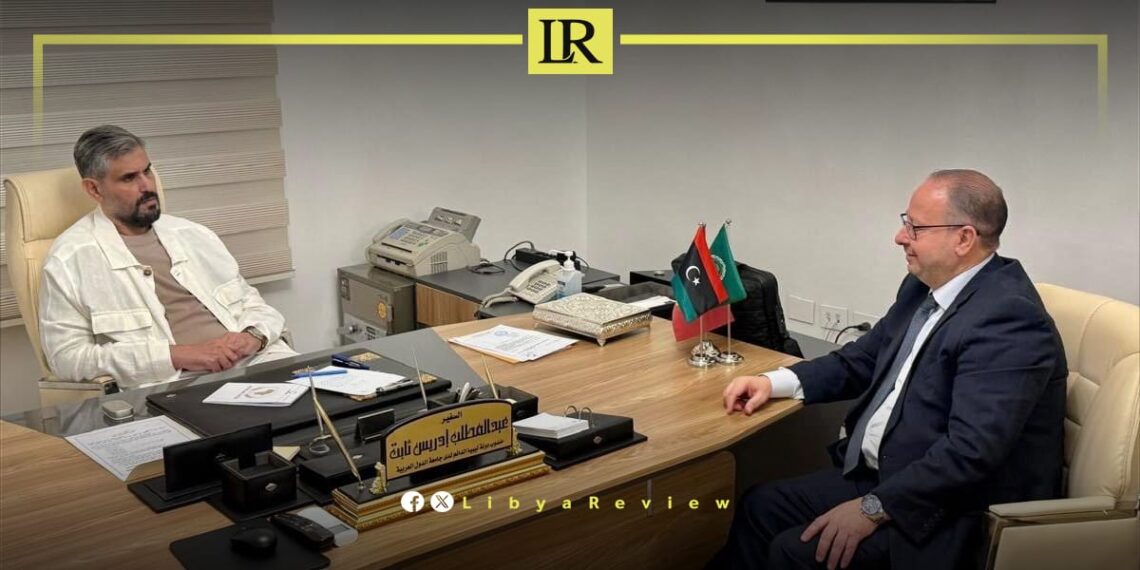Libya’s Acting Ambassador to Egypt and Permanent Representative to the Arab League, Abdelmuttaleb Thabet, held a meeting on Tuesday with the Military Attaché at the Libyan Embassy in Cairo, Colonel Khaled Milad Suleiman, to assess the condition of Libyan military students studying in Egypt.
During the meeting, the Military Attaché presented a detailed report on the embassy’s defense office operations for the first half of 2025. The report outlined the key activities and achievements of the military attaché office, highlighting major cases and administrative developments.
A core focus of the discussion was the situation of Libyan military students currently enrolled in Egyptian military academies. Both officials emphasized the need to overcome any academic or logistical challenges facing the students to ensure their continued success in both educational and military training programs.
Ambassador Thabet underscored the importance of continued efforts by the military attaché office and stressed the need to improve and modernize its operations in alignment with Libya’s national interest.
This meeting reflects ongoing efforts by the Libyan embassy in Cairo to support its citizens abroad, especially those involved in sensitive sectors like military education.
Libya has been in chaos since a NATO-backed uprising toppled longtime leader Muammar Gaddafi in 2011. The county has for years been split between rival administrations.
Libya’s economy, heavily reliant on oil, has suffered due to the ongoing conflict. The instability has led to fluctuations in oil production and prices, impacting the global oil market and Libya’s economy.
The conflict has led to a significant humanitarian crisis in Libya, with thousands of people killed, and many more displaced. Migrants and refugees using Libya as a transit point to Europe have also faced dire conditions.
The planned elections for December 2021 were delayed due to disagreements over election laws and the eligibility of certain candidates. This delay has raised concerns about the feasibility of a peaceful political transition.
Despite the ceasefire, security remains a significant concern with sporadic fighting and the presence of mercenaries and foreign fighters. The unification of the military and the removal of foreign forces are crucial challenges.


